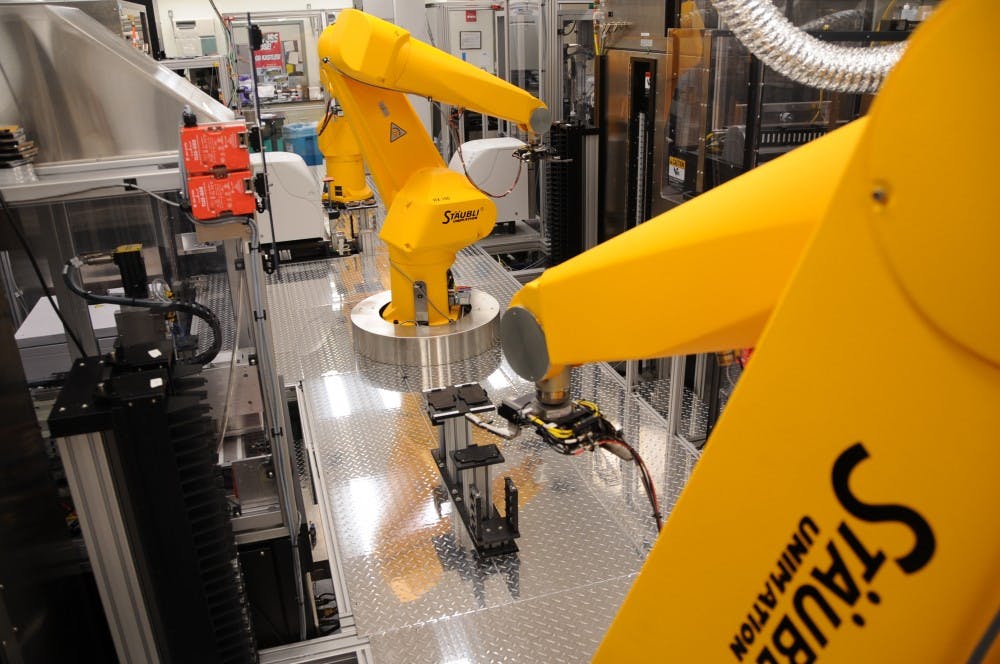
Robots are estimated to steal one-third of jobs by 2030, but people working in Philadelphia may be safer than people living in other cities.
Research from consulting firm McKinsey found that physical jobs, such as operating machinery or preparing fast food, could be at risk because of advanced automation.
"Even if there is enough work to ensure full employment by 2030, major transitions lie ahead that could match or even exceed the scale of historical shifts out of agriculture and manufacturing," according to a McKinsey Global Institute report. "Even as it causes declines in some occupations, automation will change many more – 60 percent of occupations have at least 30 percent of constituent work activities that could be automated."
But in Philadelphia, a report by the Federal Reserve Bank of Philadelphia found that people hoping to keep their jobs may be better off than people in other cities.
“Relatively wealthier areas, such as the Philadelphia and Trenton [region], have the lowest share of jobs at a high risk of automation, whereas areas with lower wages are more likely to be hit harder by the coming changes,” Patrick Harker, president of the Federal Bank, wrote.
But in low-wage sectors in the city, automation is still a threat. The Federal Bank researchers found that 18 percent of jobs are at risk of being automated in Philadelphia, which is also close to the national average.
There is also a large number of people working in the higher education and healthcare fields in the city, which are at a lower risk of being replaced by automation because they require creativity and empathy.
“Maybe in some future like the Jetsons we could have Rosie the [robot] nurse, but that set of skills can’t be automated yet,” Harker told WHYY. “There’s a technical set of knowledge you need as a nurse, but you also need to double-down on the human skills."
The Daily Pennsylvanian is an independent, student-run newspaper. Please consider making a donation to support the coverage that shapes the University. Your generosity ensures a future of strong journalism at Penn.
Donate






